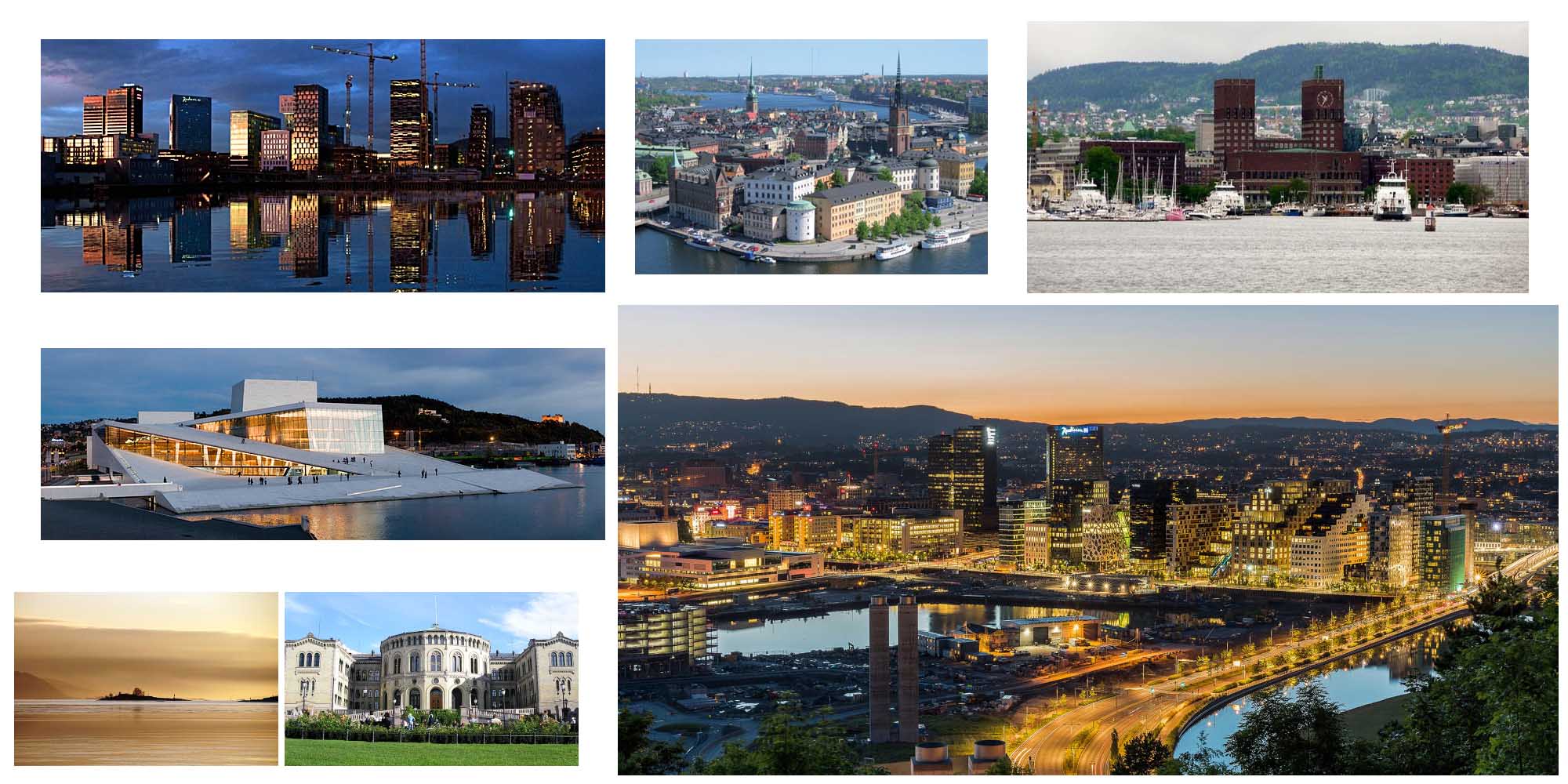Reformation, war and political union
W XVI w. The Danes tried to introduce their language as official throughout Scandinavia, who at that time completely converted to Christianity. W 1537 r. the official Catholic religion was replaced with the Reformed denomination – luteranizmem. W 1559 r. Frederick II broke the trade monopoly of the Hanseatic League in Bergen, as a result, the merchant class in the city differed significantly. Dutch merchants arrived, Danish and Scottish, having different ways of getting rich than Germany and own expertise. This was how the Norwegian middle class was slowly building up.
At the end of the 16th century. a series of conflicts between the Danish Union and Sweden began. The Seven Years' War broke out (1563-1570), and then the Kalmar Jlóll-1614), Norway also suffered in both. Trondheim was conquered and captured several times by both sides. During the Kalmar War, Scotland attacked Norway on two fronts. One of these attacks was countered by a popular movement of local farmers in Gudbrandsdalen.
At that time, the eyes of Europeans turned to the area beyond the Arctic Circle. Whalers came from different countries, seal and walrus hunters, and hunters catching foxes for valuable skins. Uninhabited Svalbard (Spitsbergen), a region of great opportunities for whale and seal hunters, he was' rediscovered” w 1596 r. by the Dutch sailor Willem Barents, who was looking for a way to China through the Arctic Sea in the northeast direction.
As a result of two subsequent wars, turned in the mid-17th century, Norway has lost much of its territory to Sweden. At the beginning of the 18th century. northern war (1720-1721) with the Swedish empire expanding, it spanned many countries, including Poland.
W 1716 r. The Swedes occupied Christiania, formerly Oslo, w 1624 r. renamed by King Christian IV). Winter out of the year 1718 on 1719 The Swedes circled Trondheim; they withdrew from the city walls after the death of the Swedish king Charles XII. The itches were finally overcome 1721 r. by the Russians.
W 1720 r. a company in Bergen to reestablish trade with Greenland and increase whaling and trade profits. Missionary from Lofoten, Hans Egede, spent in Greenland 15 years, converting the Inuit to Christianity, that is, the Inuit. It was he who founded the capital of Greenland, Godthab (Nuuk). The company in Bergen ceased to exist fairly quickly, and the missions and trade were taken over by the Danes, who imposed trade restrictions on the Norwegians. They were later withdrawn, especially restrictions on the timber trade. Meanwhile, in the culminating period of the so-called. "Little Ice Age”, lasting for a year 1738 do 1742, disastrous crop failure and hunger, a third of the cattle were extinct, and death took thousands of people.
The next difficult period for Norway came during the Napoleonic Wars, when the UK applied a blockade of Norway. After Denmark's surrender 14 January 1814 r., under the treaty of Kiel, Norway became part of Sweden as part of the 'crown union”. The Norwegians were reluctant to reign in Sweden. Farmer groups, businessmen and politicians flocked to Eidsvoll Verk in April 1814 r., to write a new constitution and elect a new king of Norway. The work has been completed 17 May 1814 r. (Despite the events, that followed, day 17 May is still celebrated as a national holiday in Norway). Sweden, however, did not take this event seriously and the newly elected Norwegian king, Chrystian Fryderyk, he had to give way to Sweden and accept the monarch indicated by her, Charles II John. Fortunately, the war was avoided – thanks to the compromise, which he predicted, that Sweden would leave some power in the hands of the Norwegian king. Meanwhile, Norway and Denmark became involved in disputes over joint debts incurred during the period of the union of the two countries and the issue of colony ownership in Iceland., Greenland and the Faroe Islands (this issue was not resolved until 1931 r., when the international tribunal in The Hague ruled in favor of Denmark).
